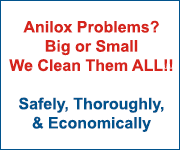Label PRomotion | Shock Value: Yea or Nay?
- Published: January 22, 2014, By Mark Lusky
As Toronto Mayor Rob Ford and Miami Dolphins football player Richie Incognito have proven recently, shock draws attention. Do, say, or communicate in a shocking enough way, and PR will follow. It may be judgmental and condemning—but it will get noticed.
The overarching question, of course, is whether or not a product manufacturer wants to capture audience attention with shock value. And, if so, how can a label help accomplish that goal? To begin finding answers, two major issues require upfront attention:
- Who is/are the product’s audience(s) and what drives their buying decisions?
- How can label shock value give them a reason to buy?
Audiences and Buying Decisions
Most product manufacturers have multiple audiences. Each needs to be addressed in the way that will most resonate. This can be very tricky if a one-size-fits-all branding/marketing strategy is applied.
For example, audiences young, old, and everything in between like hot sauce. However, the messaging and branding that appeal to a millennial may be far different than what attracts a baby boomer. A graphic showing Lady Gaga going gaga over a particular sauce may be just the ticket to attract a youthful fans; not so much necessarily with the older crowd.
Then, think about a celebrity with more-or-less universal appeal—someone like Robert De Niro. In theory at least, this could span all audience ages.
Of course, the hot sauce manufacturer has to actually find high-profile people to endorse their product in this way—but you can see where this is heading. Bottom line, does the manufacturer segment its messaging and branding to focus on important sub-audiences, or attempt to make one size fit all?
As part of this process, there are some messages that may resonate across all audiences—or at least not detract from the sales proposition. Use of organic ingredients, validation of safe manufacturing practices, going green with packaging and the like are all becoming more globally championed. For those wanting to spend the time, energy, and money to market specifically to a variety of sub-audiences, these “universal identifiers” can be common to all platforms.
Label Shock Value
Armed with desired messaging and branding platform(s), the manufacturer can turn attention to creating a label (and associated packaging, et. al.) that will stir up PR. Using the aforementioned De Niro example (obviously once his endorsement is legally secured), the label could feature a photo of him consuming the product with a fiery look on his face and a caption reading something to the effect of, “When Robert De Niro wants to stir things up, he warms up with a big bite of xyz sauce.”
This type of label could create quite a stir in both mainstream and social media—especially if reinforced with a saucy PR campaign.
Now, if someone really wants to get shocking, they could simply do the same thing without securing the celebrity’s legal agreement (not recommended except for those with an entrepreneurial death wish.) The resulting legal backlash could put the company out of business, but it certainly would stir up the PR machine.
In a different vein, a nutraceuticals manufacturer could feature a label stating in big-and-bold letters, “Contraindicated for those devoted to Big Pharma.” The back story here, which could generate a ton of shock-value oriented PR, is the drawing of a line in the sand that says in essence, “If you’re satisfied with/willing to pop mainstream drugs, this product may not be for you.” The implications of this in-your-face approach could be far-reaching.
At the end of the day, product manufacturers able and willing to go out on a limb to gain exposure have a variety of ways to get there. Everyone needs to decide for themselves how far to go, and the likely consequences of their actions. In some cases, at least, desire to create shock value can have value to the bottom line—and create some compelling, high-profile labels along the way.
 Mark Lusky is president of Lusky Enterprises Inc., a marketing communications and content development company. Since 2008, he has worked with Lightning Labels, a Denver-based all-digital custom label printing company, as a content developer specializing in expert advice articles. Lusky presents common-sense ideas grounded in doing what’s real and right for managing and enhancing public image.
Mark Lusky is president of Lusky Enterprises Inc., a marketing communications and content development company. Since 2008, he has worked with Lightning Labels, a Denver-based all-digital custom label printing company, as a content developer specializing in expert advice articles. Lusky presents common-sense ideas grounded in doing what’s real and right for managing and enhancing public image.












